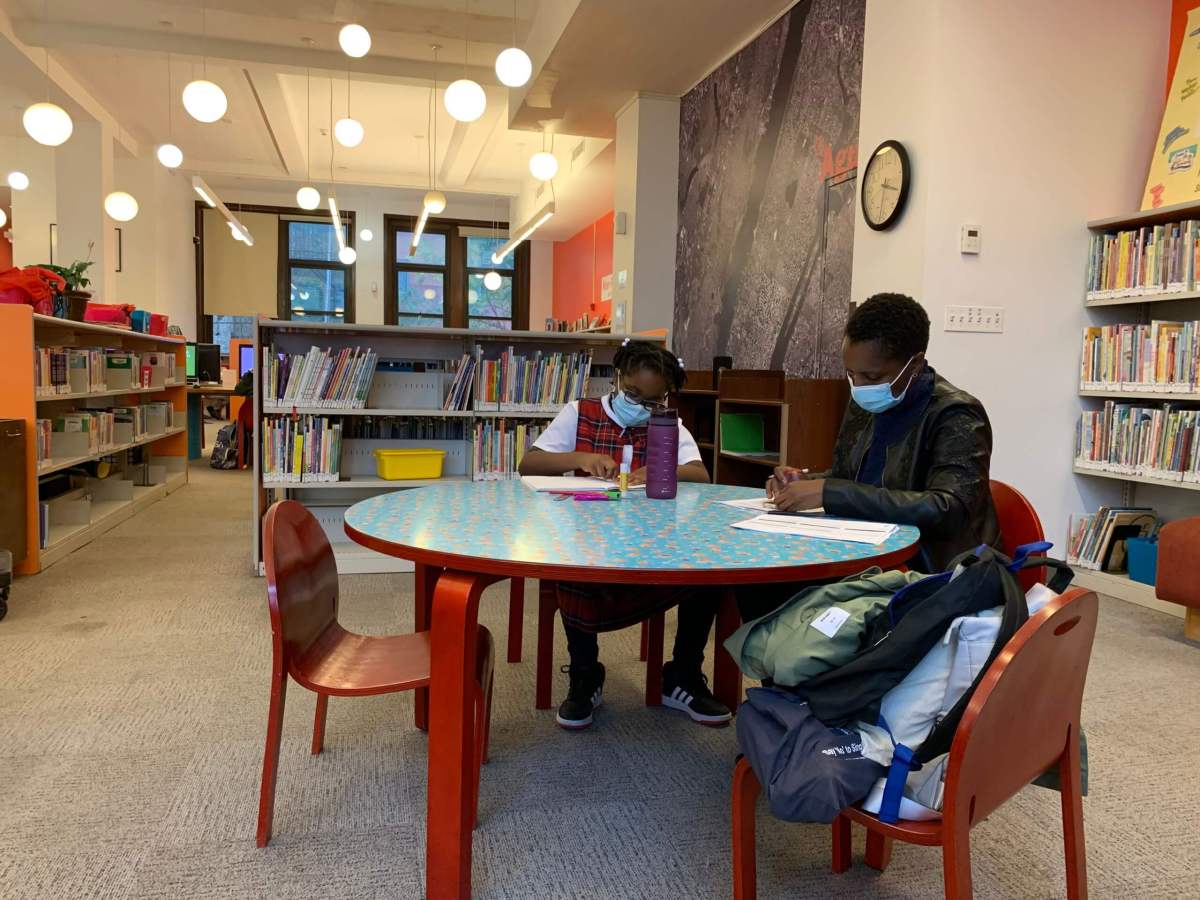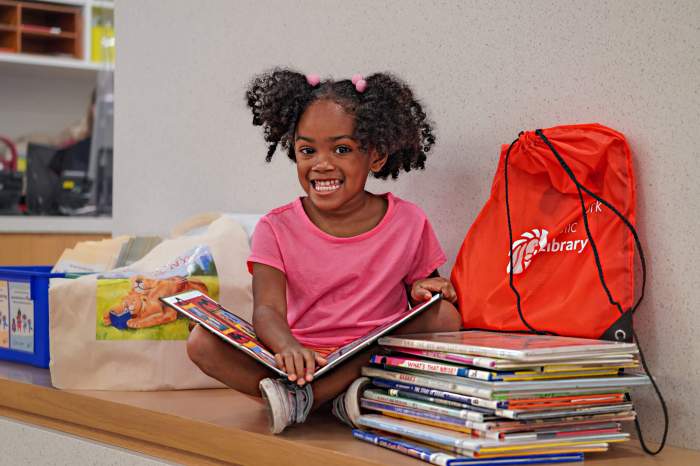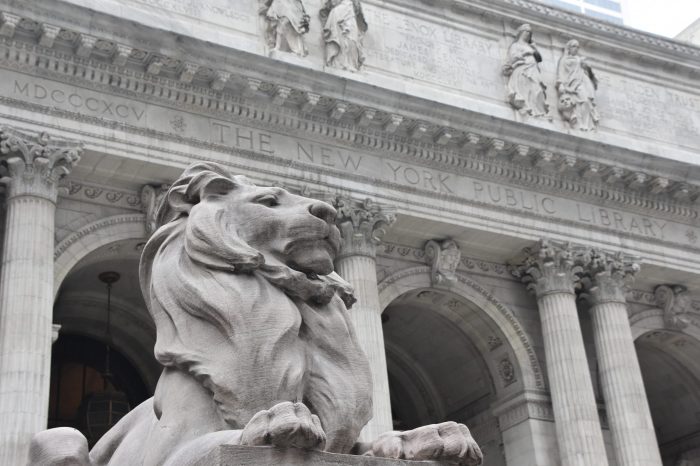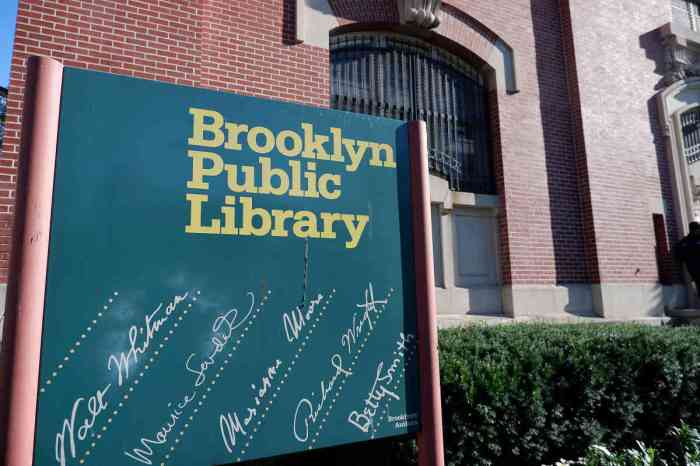New York City’s three public library systems announced Tuesday that they will no longer charge late fines on books and other circulating materials.
The Brooklyn Public Library, New York Public Library and Queens Public Library have become the latest and largest public library systems to eliminate late fines, which have been in place since the three systems were created at the turn of the 20th century.
“This announcement is another major step towards making our public libraries, the heart of so many communities, accessible to all,” said Mayor Bill de Blasio in a press release from New York City’s three public library systems. “Eliminating fines will let us serve even more New Yorkers, allowing them to enjoy all of the resources and programs that public libraries offer to grow and succeed.”
The change addresses an accessibility issue and follows action by other big cities including SanFrancisco, Chicago, Philadelphia, Miami-Dade, Seattle, San Diego and Dallas who have also nixed late fines.
“The San Diego Public Library system, which went fine-free in 2018, reported an 8% increase in library card sign-ups, a 4% increase in circulation, and no increase in lost items (the number remained at about 2%),” the release said. “Director Misty Jones noted that many children and teens got their first library cards without the fear of fines, and many formerly blocked patrons came back.”
In the past, library cards were blocked if they accrued $15 or more in fines. This will no longer be the case as New Yorkers of all ages will no longer need to pay any late fines on overdue materials.
At the time of the announcement, about 400,000 New Yorkers, more than half in high-need communities, had their cards blocked for accruing more than $15 in fines, according to the release. High needs communities are those where the median household income is below $50,000.
Megayo Lebene and his third grade son spend about an hour at the Aguilar Library in East Harlem on most weekdays. Lebene works part-time, goes to school full-time and is a father. He has turned in books late in the past, not because he forgot to return them but because he did not have time between school, work and taking care of his family to get to the library on time to make the return.
Lebene’s library card was blocked because he did not have the money to pay the late fees. He was unable to check out books for him and his son.
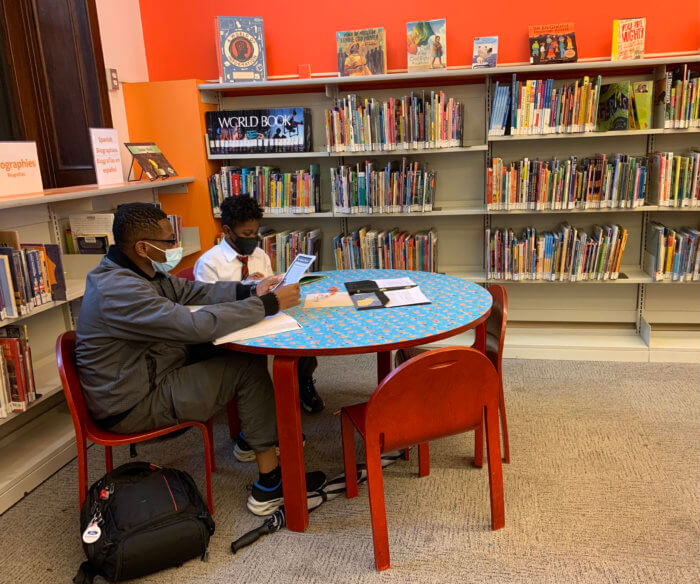
“The kids would be like, ‘Mommy and Daddy I want to read,’ and we’d have to say “we can’t,” and that’s sad,” Lebene said. “You don’t want kids to go to the house and just sit and watch TV. That’s not a good thing.”
Lebene said the new policy is a good thing because he wants his kids to be able to have something to read at home and not just be looking at a phone or TV screen all the time. He said the policy will also help people who use the library who do not have jobs or the money to cover things such as late fees.
“It’s more convenient for everybody,” Lebene said.
Increasing access to the library, especially for children and teens
This policy change should encourage “increased usage of the library systems and create a more equitable system that does not disproportionately impact high-need communities,” the release said.
“During the pandemic, it was clearer than ever that we live in a Tale of Two Cities, with our most vulnerable citizens too often left behind,” said New York Public Library President Anthony W. Marx in the release. “We must work to ensure that we are adhering to our mission of making knowledge and opportunity available to all, and that means addressing late fines.”
Equitable access to information and knowledge is a powerful thing, said New York City Schools Chancellor Meisha Porter, in the release.
“Eliminating fines in New York City will benefit generations of children and help foster their love of learning,” Porter said.
In 2017, a full citywide assessment was done of blocked cards. The assessment showed 80% of blocked youth cards were located in low-income communities, according to the release.
In the NYPL system, branches in high-need communities account for 6 times the number of blocked patrons as others, according to the release.
“The 10 branches with the highest percentage of blocked cards are all in high needs communities, and each have one in five cardholders blocked,” the release said.
The majority of blocked accounts belong to children and teens.
“For far too long, late fines have generated fear and anxiety among those who can least afford to pay, preventing them from opening library accounts, checking out books, or even coming through our doors. I vividly remember as a child having late fines on my card and hesitating about going to the library when I needed it,” said Queens Public Library President and CEO Dennis M. Walcott in the release.
A long-time coming
Since 2010, New York City’s three library systems have been closely evaluating fines, testing various models and programs to determine the best path forward, the release said.
The systems tried “Read Down Your Fines” programs and two amnesties for kids and teens. One year after the latest amnesty program, held in 2017, there was over a 60% increase in the percentage of previously blocked children and teens who then checked out materials from their public libraries, the release said.
“This effect was most pronounced in the lowest income neighborhoods,” said the release.
A case study also found that children and teens with fine-free MyLibraryNYC cards, special cards issued to participating New York City Department of Education schools, check out 30% more items on average than children and teens without MyLibraryNYC cards. And the children and teens with fine-free MyLibraryNYC cards have less than a 2 percent difference in loss rates.
“Libraries are for everyone yet monetary fines create barriers to accessing library services for those who need it most. I want to thank our three Public Library Systems for taking this important step to advance social equity and bring more New Yorkers back to our great libraries,” said City Council Speaker Corey Johnson in the release.
New York City’s three public library systems have also cleared all prior late fines from patron accounts.
Simone Wilson and her daughter are also regulars at the Aguilar Library.
“When I did have late fees, I would pay them,” Wilson said. “But some people do have trouble paying.”
Zahara Beckles, Wilson’s daughter, is in elementary school and loves to read fiction chapter books. She said she thinks the new policy is a good and bad thing.
“I think it’s a good idea, and also a bad idea because people might hold it (the book) for too long and think there’s no punishment. But it’s also good because I have a late library book that I forgot to bring.”
Wilson agreed. She said she thinks people could become carefree about returning the books, but it is also good, especially in the light of COVID-19, to make sure that all families will have access to books.
“But it is necessary to have some checks and balances so the library can get their books back,” Wilson said.
New Yorkers will still need to pay replacement fees if they lose material. Materials are considered lost after being overdue for about one month. If materials are returned, however, no fees will apply, the release said.
If patrons accrue replacement fees, cards will be blocked from borrowing additional physical materials. But even with a block on their cards, patrons can still access computers, e-books, and other digital services.
A week of giveaways and special programs will take place at all three public libraries beginning on Monday, October 18. New Yorkers can stop by their local library during that week to get plugged into the library, check out materials and return any materials- fine free.



